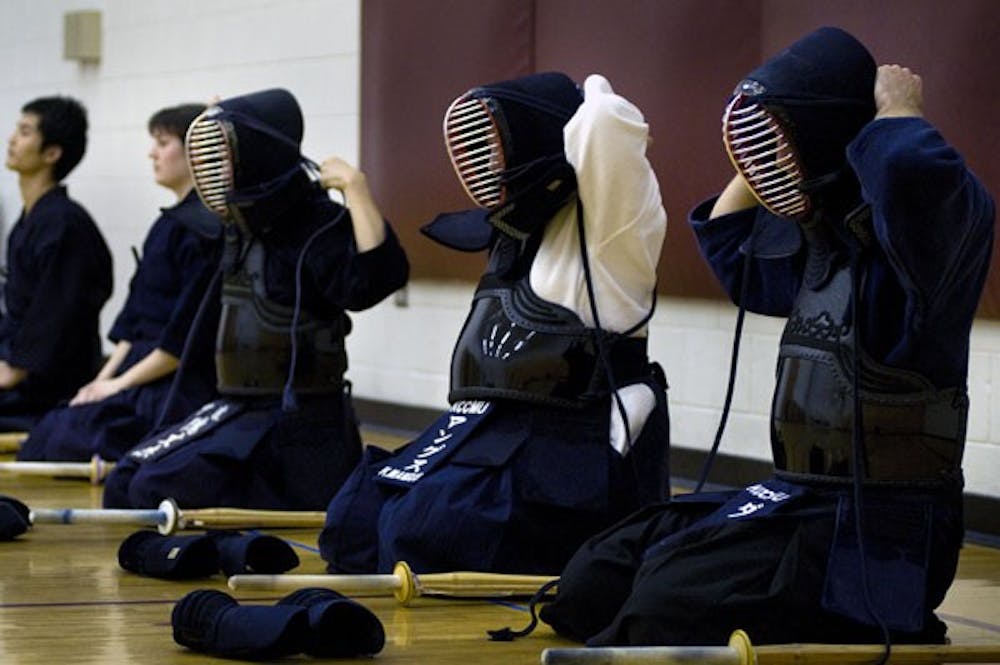Way of the Sword: Kendo Club has far-reaching impacts on members' lives

The “way of the sword” does not end when members of the university’s Kendo Club remove their armor and leave the arena.
The fencing-like sport teaches many things participants can apply to the rest of their lives, club president Tyler Dunham said.
“Kendo is about a lot of things,” the Remus senior said. “It’s very ritualistic, it’s about respect and becoming a better person.”
Dunham first got involved with the Kendo Club when he was a freshman.
“I just happened to meet the old president and I already did martial arts,” he said. “Then eventually I took over.”
Currently, the club has about six members, Dunham said.
New to the art of Kendo is Troy freshman Christina Cornell.
Cornell said she first discovered the Kendo Club at MAINstage in August.
“I had been mildly interested before,” she said, “but never had the chance to do it and I asked Tyler about it and it seemed cool.”
She said she has really enjoyed her involvement in the club so far.
China freshman Jiao Liang said he enjoys the environment and drive of Kendo.
“I like to do some competition and fighting,” he said. “But I didn’t want to use my fists, that’s why I like it.”
The club’s highest ranking member is Wenjie Wei, a China freshman.
He joined the club this semester, but brought a fair amount of experience with him from home.
“I have been doing it a long time, it can be so addictive,” Wei said.
Dunham said there is a lot of time and devotion needed to be fully involved in Kendo.
The sport is much more complex than it first appears, he said. Care must be taken to learn all of its associated rules and rituals.
“Like any Japanese martial art,” Dunham said, “it takes a lot of work and dedication.”
He said because the sport is relatively expensive there are no dues to join.
The sword, or shinai, is the main tool of Kendo practitioners, and also the least expensive, ranging from around $20 and up, Dunham said.
The armor, however, usually costs several hundred dollars.
But the costs of the sport should not deter those interested, he said, as the lessons learned doing Kendo can be applied throughout life. It doesn’t end in the dojo, the place of learning, but reaches into everything you do.
Among the values learned in Kendo, one rises above all others — respect.
“(Kendo) makes you more respectful and that’s why we do it,” Dunham said. “It’s very ritualistic, you learn to be very respectful and maintain yourself and your equipment.”
He said Kendo isn’t for everyone, however. It must be taken seriously.
“You can be nice and respectful in the dojo and leave and be a (jerk), you’re not really getting it,” Dunham said.



